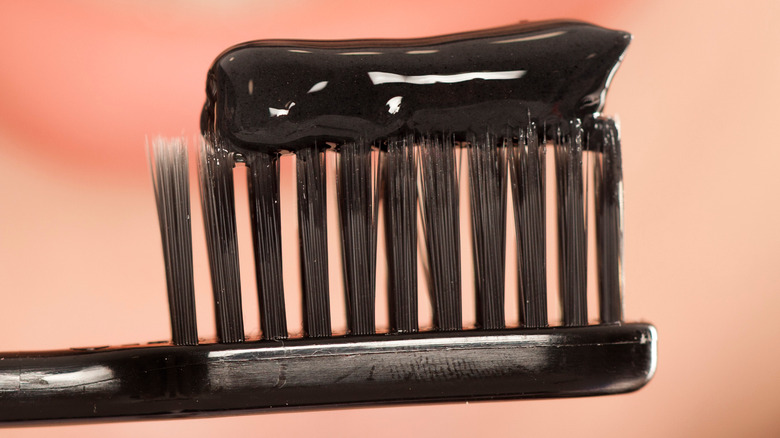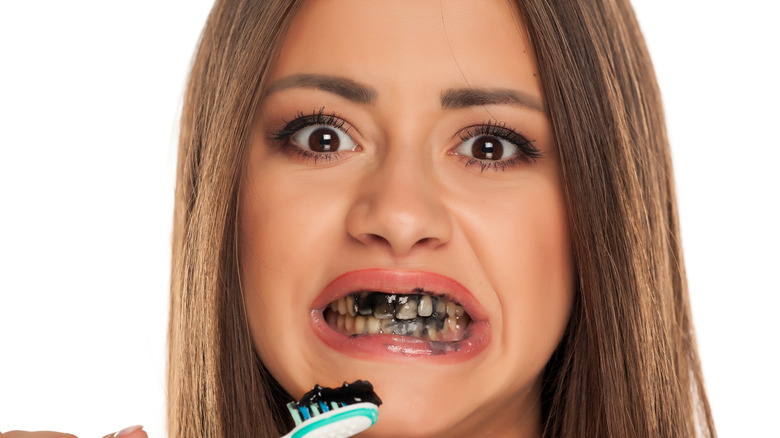Is Charcoal Toothpaste Actually Good For Your Teeth?
Charcoal has been used throughout history as a means to rid the body of impurities (via GoodRx). It has since been incorporated into a wide range of beauty and healthcare products that you can find everywhere from vitamin shops to large chain grocery stores.
The uses of charcoal are not just limited to supplements and facials, however. According to GoodRx, activated charcoal is also used in hospitals, as it can bind to certain types of poisons and medications in the stomach, thereby effectively reversing overdoses and filtering the substance out through human stool.
Otherwise known as activated carbon, activated charcoal can be derived from bamboo, coconut shells, and nutshells, among other sources (via the BBC). The chemically-treated black substance goes through repeated rounds of superheating at 1,000 degrees Fahrenheit or higher (via Water Filters Fast). Once it's been treated with nitrogen and argon in between heatings, and oxygen has been added during the second round of heating, it then creates a porous surface.
Of the many activated charcoal products on the market, many people are making the switch to charcoal toothpaste. However, science says this may not actually be the best move when it comes to the health of your teeth.
Charcoal toothpaste may actually increase your chances for tooth decay
Touted to have stain removal and teeth whitening benefits, some studies have found that the smile-brightening benefits of charcoal toothpaste are essentially no different than regular toothpaste (via GoodRx).
"In theory, it binds to everything in its path — stains, tartar, bacteria, viruses, and maybe even your tonsils," cosmetic dentist Peter Auster explained to Harper's Bazaar.
The effects of charcoal toothpaste on oral health were the subject of a 2019 study published in the British Dental Journal. The findings indicated that charcoal toothpaste can potentially cause gum irritation and further damage tooth enamel, rather than preserve it (via the BBC). Because many charcoal-based toothpastes do not contain fluoride, minimal tooth protection is offered by these products, leaving users more susceptible to tooth decay.
"Charcoal-based toothpastes offer no silver bullets for anyone seeking a perfect smile, and come with real risks attached," Professor Damien Walmsley of the British Dental Association told the BBC. When it comes to toothpaste, experts say it's better to choose products containing fluoride over those without.

